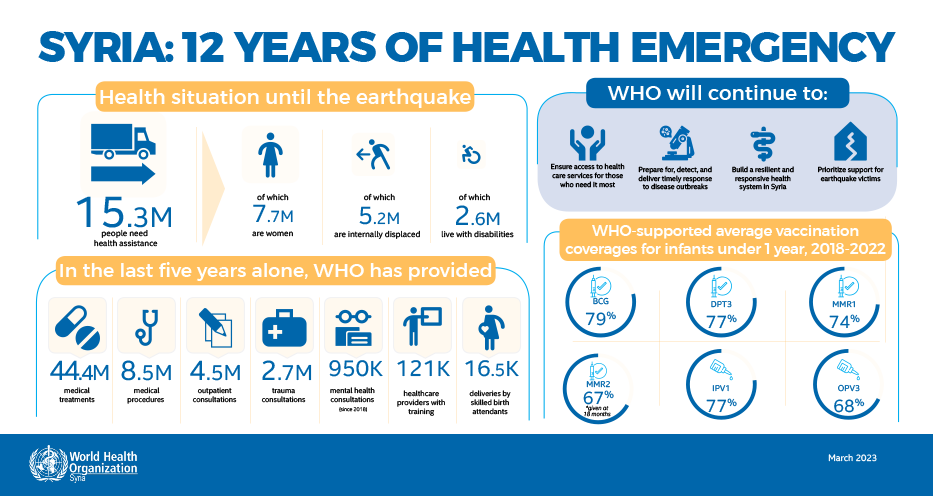15 March 2023 – Even before the earthquake, the humanitarian crisis in Syria had been steadily worsening since 2011. Ravaged by over a decade of ongoing conflict that has led to major socioeconomic decline, huge population displacement, the erosion of a once-solid health system, COVID-19, and the spread of transmissible diseases, such as cholera and measles, Syria was in no way prepared to face a natural disaster of such proportions as the 6 February 2023 earthquake.
The World Health Organization (WHO) has been providing health care support on the ground through it all, offering trauma care to victims, treating patients with chronic and communicable diseases, providing routine immunizations, maternal and neonatal care, and mental health services, among other life-sustaining support. In the first 24 hours after the earthquake, WHO immediately responded with life-saving supplies and equipment, and has been providing increasing technical and logistical support since.
The time has come for Syria to rebuild a resilient and responsive health system capable of catering to the urgent needs of a population who have suffered extensively for over a decade with silent resilience and an inspiring will to live.



